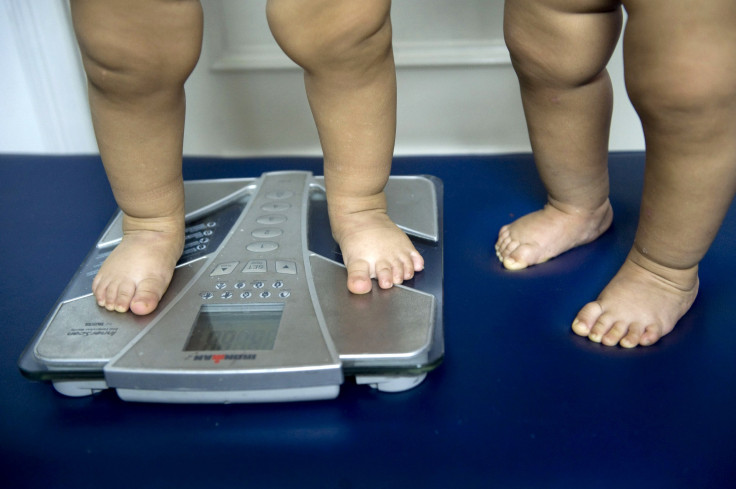Parents Might Be Responsible For Their Obese Children's Weight Gain; Is Thinking They're Overweight A Self-Fulfilling Prophecy?

Childhood obesity has more than doubled over the last 30 years, and although the root of America’s unprecedented weight gain is complex, a new study has found that when parents simply think their kid is overweight — whether true or not — they gain weight. A collaborative team of researchers from Florida State University College of Medicine and the University of Liverpool examined what effect a parent’s perception of their child’s weight had on children as they become teenagers. They learned that parents may be unintentionally increasing their child’s risk of becoming overweight.
For the study, published in the Journal of Pediatrics, researchers recruited 3,557 Australian children between the ages of 4 and 5 years old, along with their parents (97 percent of whom were mothers) and observed them until their twelfth or thirteenth birthdays. They tracked the body mass index (BMI) of each child to determine if they were normal or overweight, and then surveyed the parents to find out if they were aware that their child was overweight.
Every two years their weights were measured and compared to their parents perception of their weight. It turns out children who were overweight when they were young and who had parents who thought they were overweight, were more likely to gain more weight throughout their childhood. Children who were overweight in early childhood but whose parents perceived them to be normal or underweight were less likely to gain more weight as they grew up. This effect was seen even in children who were normal weight or underweight — if their parents had mistakenly perceived them as overweight, they were more likely to gain weight.
"Parental perceptions may be something of a self-fulfilling prophecy," said the study’s lead author Angelina R. Sutin, an assistant behavioral science and social medicine professor at Florida State University College of Medicine.
In previous research, similar studies had been done on adults, which found adults who perceived themselves as overweight (whether they were overweight or not) were more likely to gain more weight over time than adults who perceived themselves as normal weight. It’s where Sutin said she and her colleagues came up with the idea for examining how perception affects childhood weight gain.
"One explanation may be that when parents perceive their children as overweight, they may be less likely to monitor their children's food intake and physical activity," Sutin said. "In adulthood, individuals who feel stigmatized because of their weight tend to overeat and avoid physical activity . Similar mechanisms may also operate in childhood. And, even if parents try to limit their children's food intake, children may rebel and subsequently eat more."
Shaming or stigmatizing children, especially as their bodies are still growing and changing, can drastically influence self-esteem and fuel an unhealthy eating cycle and sedentary lifestyle. According to the Obesity Society, weight stigma, which includes ridicule, teasing, insults, stereotypes, or other physically aggressive behaviors, is more likely to occur in school or social settings. But children are especially vulnerable to weight stigma when it occurs within their own home — the place they may look to find solace from ridicule. It can lead to low self-esteem, depression, and social isolation, which are all ingredients to feed an unhealthy relationship with food.
Instead of being a part of the problem, parents can work with their children to encourage healthy behaviors and eating habits, while taking the focus off the number on the scale. According to the National Institutes of Health, because children grow at different rates and stages, their amount of body fat can change drastically between girls and boys. But because overweight children are significantly more likely to become obese adults with a slew of consequential health problems, parents need to monitor their children’s weight. This forces them to walk a fine line between keeping their child’s weight in check while not damaging their self-esteem.
Sutin concluded: "Parents should talk to their children about what it means to be healthy. It may be more effective to discuss the importance of healthy eating and physical activity for overall health — and provide plenty of opportunities for both in the daily lives of their children — than focus specifically on weight."
Source: Sutin AR and Robinson E. Parental Perception of Weight Status and Weight Gain across Childhood . Journal of Pediatrics. 2016.



























